Types of Aid Available
Making Your Education More Accessible and Affordable
The Office of Student Financial Services uses the FAFSA (Free Application for Federal Student Aid) to determine students’ eligibility for multiple types of financial aid. While you are not required to file a FAFSA to receive aid, we recommend taking the time to complete the application to maximize your financial aid offer.
FINANCIAL AID TYPES
There are two primary types of financial aid. They include Gift Aid and Loans.
Gift Aid is financial aid that does not have to be repaid; this includes both scholarships and grants.
For more information about a specific scholarship or grant, click on the link below:
- Institutional Merit-Based Scholarships
- Federal Pell Grant
- Federal Supplemental Education Opportunity Grant
- NC Need Based Scholarship
- Institutional Need-Based Scholarships
- Outside Scholarships
Loans is financial aid that has to be repaid. The most common type of loans are federal student loans, which require repayment once the student graduates.
For more information about specific loan options, click on the link below:
- Federal Direct Subsidized Loans
- Federal Direct Unsubsidized Loans
- Federal Direct Parent PLUS Loan
- Private Student & Parent Loans
Institutional Merit-Based Scholarships
Institutional Merit-Based Scholarships are offered to incoming traditional undergraduate students pursuing their first bachelor’s degree. These scholarships are offered to incoming high school graduates (first-time freshmen) and students transferring from other universities and colleges.
First-Time Freshman Merit Scholarships
Our Admissions Office uses your high school grade point average to offer you a scholarship based on your academic achievements in high school. These merit scholarships are renewable for up to four years as long as the student meets the yearly requirement.
Starting in the Fall 2024 semester, our First-Time Freshman Merit Scholarships are:
Trustee Scholarship – $7,500 annually
Dean Scholarship – $6,500 annually
Founders Scholarship – $5,500 annually
Achievement Scholarship – $3,000 annually
If you have questions regarding your merit scholarship, please contact your Admissions Counselor.
First-Time Freshman Fine Art Scholarships
Students pursuing a bachelor’s degree in fine arts may qualify for a Fine Art Scholarship instead of a Merit Scholarship. Our Admissions Office and the Department of Fine Arts work together to offer students a degree based on their performance and outstanding talents.
There are three types of Fine Art Scholarships, including:
- Art Scholarships
- Music Scholarships
- Theatre Scholarships
The amount of your Fine Art Scholarship is determined by our Admissions Office and respective Fine Art Department.
If you have questions regarding your fine art scholarship, please contact your Admissions Counselor.
Merit-Based Transfer Scholarships
Our Admissions Office uses your college grade point average to offer you a scholarship based on your academic achievements. These merit scholarships are renewable for up to four years as long as the student meets the yearly requirement.
If you have questions regarding your merit scholarship, please contact your Admissions Counselor.
Federal Grants and State Scholarships
Federal grants and state scholarships are need-based financial aid that require the student to complete a FAFSA. Eligibility and the amount of the scholarship is based on the information provided on the FAFSA.
Undergraduate students pursuing their first bachelor’s degree may be eligible for a federal grant or state scholarship.
Federal Pell Grant
The Federal Pell Grant is offered to qualifying undergraduate students. Federal Pell Grants are offered to students that demonstrate exceptional financial need based on the FAFSA information. Eligibility for the Federal Pell Grant is determined each academic year.
Federal Pell Grants do not have to be repaid (except in rare circumstances).
Your completed Free Application for Federal Student Aid (FAFSA) is your application for the Federal Pell Grant.
Federal Supplemental Educational Opportunity Grant
The Federal Supplemental Educational Opportunity Grant (FSEOG) is offered to qualifying undergraduate students. First consideration for the FSEOG is given to students who receive the Federal Pell Grant and who demonstrate the most financial need.
Federal Supplemental Educational Opportunity Grants do not have to be repaid (except in rare circumstances).
NC Need Based Scholarship
The NC Need Based Scholarship is offered to qualifying undergraduate students. NC Need Based Scholarships are offered to students that demonstrate financial need based on the FAFSA information. Eligibility for the NC Need Based Scholarship is determined each academic year.
NC Need Based Scholarships do not have to be repaid (except in rare circumstances).
Your completed Free Application for Federal Student Aid (FAFSA) is your application for the NC Need Based Scholarship.
Institutional Need-Based Scholarships
Stay Local Scholarship
First-time freshmen from the state of North Carolina may qualify for our Stay Local Scholarship. Students are required to file the FAFSA and complete the NC Residency Determination.
Pell eligible students will receive a combination of federal, state, and institutional scholarships and grants equal to our full tuition cost.
Students not Pell-eligible will receive a $1,000 annual Stay Local Scholarship.
Pride Grant
Traditional undergraduate students may qualify for the Pride Grant if they demonstrate financial need based on the results of the FAFSA. Students will be required to live on campus to receive the Pride Grant.
GC shift_ed Scholarship
Incoming students who graduate from a public Guilford County High School may qualify for our GC shift_ed Scholarship. Students are required to file the FAFSA and complete the NC Residency Determination.
Students with a family adjusted gross income (AGI) of $75,000 or less will receive a combination of federal, state, and institutional scholarships and grants equal to our full tuition cost.
Students with a family adjusted gross income (AGI) between $75,001 and $150,000 may be eligible for a scholarship from shift_ed. Students must complete the shift_ed scholarship application and indicate their post-secondary institution enrollment prior to July 1st of 2024. For information about the shift_ed scholarship, click here.
Outside Scholarships
Any scholarship not offered by the federal/state government or Greensboro College is considered an outside scholarship. We recommend applying for every outside scholarship you can find.
We have an Outside Scholarship page that lists select outside scholarship opportunities and lists various outside scholarship search engines.
Federal & Private Loans
Federal Direct Subsidized Loans
The Federal Direct Subsidized Loan is offered to you if you are an undergraduate student with a financial need as determined by the FAFSA. For the Department of Education to pay interest on these loans, you must be enrolled at least part-time.
Your completed Free Application for Federal Student Aid (FAFSA) is your application for Federal Direct Subsidized Loans.
Federal Direct Unsubsidized Loans
The Federal Direct Unsubsidized Loan is offered to eligible undergraduate and graduate students that have filed a FAFSA. The student is responsible for paying the amount borrowed, plus interest, that accrues on these loans. Payments are not required during enrollment, but if the interest is not paid, it will accrue and be capitalized.
Your completed Free Application for Federal Student Aid (FAFSA) is your application for Federal Direct Unsubsidized Loans.
Federal Direct PLUS Loan for Parents
The Federal Direct PLUS Loan for Parents is a federal loan that parents can apply for. If approved, the loan may be used to cover the remaining balance. If not approved, the student may be eligible to borrow additional Federal Direct Unsubsidized Loan funds.
For additional information about the PLUS Loan, or to apply, visit StudentAid.gov.
Private Student/Parent Loans
Private lenders and banks offer private educational loans to qualifying students and parents. In most cases, you and a parent will need a creditworthy co-signer. All terms and conditions are set by the bank or lending institution and you can find applications for these loans online.
These lenders offer loans to both students and parents:
These lenders offer loans to students:
Our office offers a Loan Comparison Tool to compare student loan lenders.
Federal Work Study
Work Study is a federally funded work program with limited positions that allows our students to work on campus and for select off-campus partners. Unlike most financial aid, work study does not go directly toward covering a student’s tuition. Work study students find a job within the program and receive a paycheck monthly for their hours worked.

